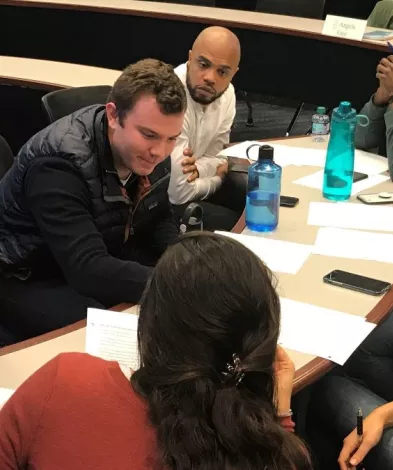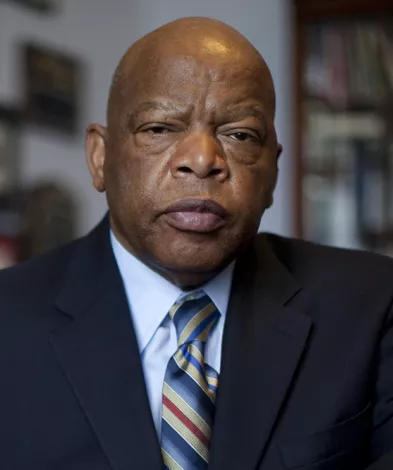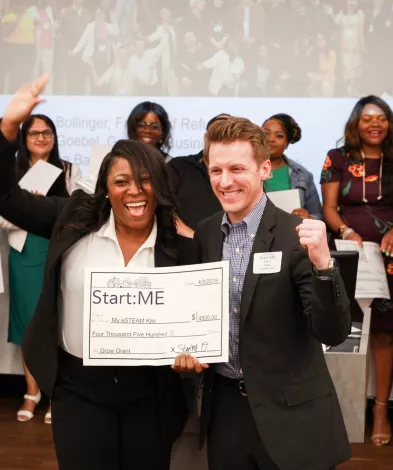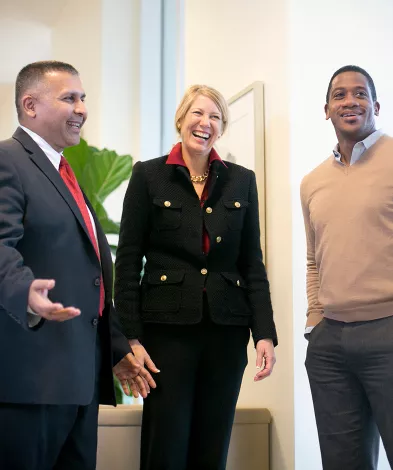Diversity, Equity, & Inclusion
Meaningful Change Requires Meaningful Action
Brian Mitchell
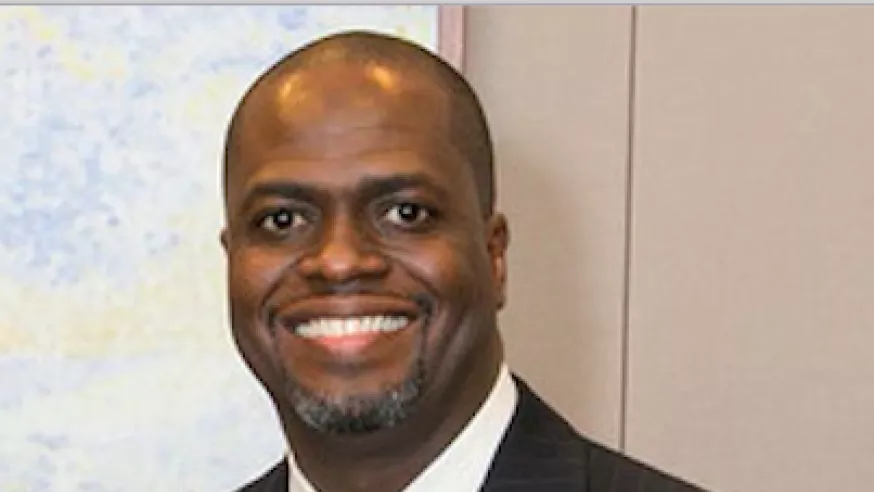
Associate Dean, Full-Time MBA Programs and Goizueta Global Strategy & Initiatives
Sample Courses
Course explores the science of bias and uses this knowledge as a foundation for how to design and assess effective policies and DEI interventions within organizations.
- Understanding the psychological underpinnings of cognitive bias in organizations
- Learn how disadvantage accumulates through policies and institutions
- Learn how to be an ally and bystander intervention
- How to feel included in the workplace and navigate thorny issues in DEI
- Design and evaluate policies and interventions that work in organizations
Faculty: Erika V. Hall
Experiential learning course introducing business school students to the role of philanthropy in solving public problems with a focus on addressing inequality in Atlanta.
Topics covered include the history of individual and corporate giving in the U.S. as well strategic and equitable community investment practices
- Core experiential component is student-led grantmaking of ~$60,000 to local nonprofits
- Features guest lecturers from philanthropic leaders in the field
Faculty: Brian Goebel
Peachtree Minority Venture Fund is a student-run venture capital fund housed in The Roberto C. Goizueta Center for Entrepreneurship & Innovation at Emory University’s Goizueta Business School. Peachtree is the only student-run venture capital fund that focuses exclusively on making equity investments into underrepresented minority entrepreneurs (Black, LatinX, Native American). Students source companies, conduct due diligence, and make investment recommendations to the Peachtree Investment Committee which is made up of Goizueta faculty, staff, and alumni.
Faculty: Rob Kazanjian
This cross listed course focuses on an array of social issues and the role capitalism plays in both the cause of those issues and their potential solutions through new ideas, organization, and investment.
Throughout the world there are a number of critical and unsolved social issues related to poverty, health, education, and the environment. Unfortunately, traditional government, nonprofit, and business organizations have a difficulty marshaling the financial, human, and structural resources required to effectively address and positively impact those issues. For these impacts to be larger and more reliable, we need to understand the social entrepreneurs developing innovative solutions to our most pressing social problems.
We need to better understand the goals of the impact investors who are dedicating capital to companies, organizations, and funds for the purpose of generating measurable social and environmental impact alongside a financial return.
Faculty: JB Kurish
This course surveys the complex and evolving relationship between corporations and society. This course adopts a broad theoretical perspective on the challenges and opportunities that corporations confront in their interactions with society, such as struggles to maintain legitimacy, acquire resources, build partnerships, and solve complex global problems.
Faculty: Wes Longhofer
This course surveys the evolving role that nonprofit organizations and their leaders (both management and board of directors) play in delivering social impact. This course is delivered through a blend of academic content including traditional case examples, emerging business model frameworks, and guest lecturers from nonprofit leaders to provide context on the broader sector. We will also cover the role and importance of key actors in the sector, including foundations / grant makers, charities, service providers, government entities and social enterprises.
Faculty: Brian Goebel
Research suggests that a leader's capacity and productivity are fundamentally dependent on three competencies: IQ, Business/Technical Expertise, and something known as "Emotional Intelligence" or EQ for short. The more highly placed in an organization an individual is, the more critical Emotional Intelligence becomes. Studies show that 85 percent of star performers' effectiveness is linked to their possessing a high degree of Emotional Intelligence.
Daunting challenges confront leaders today: a pandemic, social injustice, globalization of the economy, rapid changes in technology, shifting business models, accelerating pace of business – all at an ever-increasing rate of change. Whether a company proves agile enough to survive and thrive will depend on the degree to which its leaders can manage their own emotions in the face of escalating change. Emotionally competent leaders think clearly under pressure, make strategic decisions, and adapt to shifting business climates with flexibility and focus. A leader exercising these capacities has a profound impact on others, serving to mitigate reactivity, building trusting relationships, and focusing on what matters – delivering business results. The objective of the course is to assess your EQ and use that assessment along with multiple methods delivered in class to help you improve your EQ and increase your growth as a leader.
Faculty: Karl Kuhnert
The purpose of this course is to help students understand the general principles and processes of team-based work. Team work is prominent in a variety of organizational, social, and professional settings. Yet, many misconceptions exist about teams that hinder their effectiveness. The course will cover the theory and processes of group and team behavior. A variety of behavioral topics will be covered with an emphasis on group contexts. Students will gain skills in managing and participating in teams through readings, case analysis, experiential exercises, and projects. The course is intended for students who seek a greater understanding of teams and who wish to increase their competence in managing and working effectively in team contexts. This course is also suitable for students interested in expanding their knowledge of the people side of organizational life.
Faculty: Jill Perry-Smith
DEI Initiative Highlights
Voices of Goizueta
Our Research
-

Racial Bias is Everywhere Erika Hall
-

Recessions Stoke Racial Tensions Emily Bianchi
-

Why are U.S. Corporate Boards Under-diversified? Grace Pownall & Justin Short


